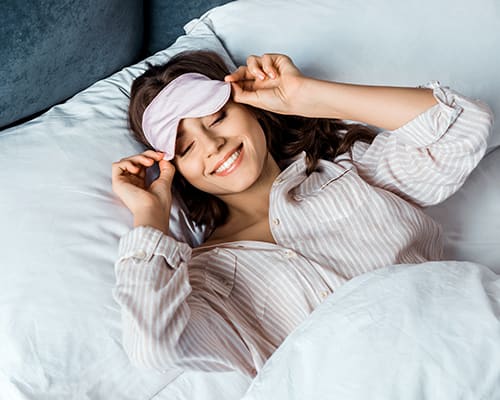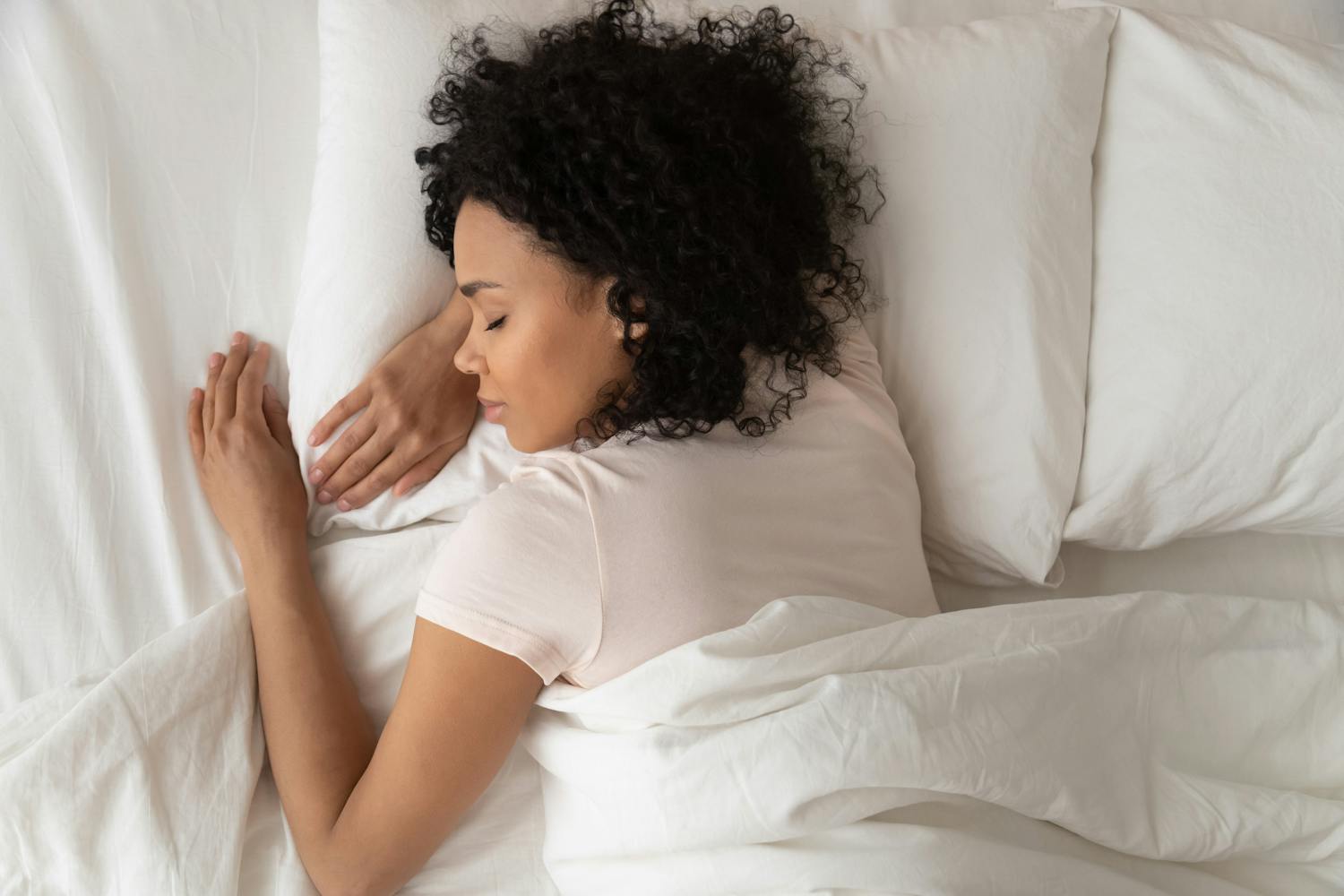Effective Treatment Solutions for Handling Sleep Disorders and Enhancing Peaceful Sleep
In the world of healthcare, the management of rest problems and the mission for relaxed sleep are essential elements of overall health. Efficient therapy remedies use a diverse approach to deal with these challenges, varying from cognitive behavioral treatments to alternative practices that advertise relaxation and mindfulness. The exploration of numerous methods, including the assimilation of medicine and light therapy, opens a realm of opportunities in the search of much better rest top quality. As we browse the detailed landscape of sleep conditions and look for to improve our rest experience, a much deeper understanding of these therapy options might hold the key to unlocking a more relaxing and fulfilling corrective journey.
Cognitive Behavior Modification for Sleeping Disorders (CBT-I)
Cognitive Behavior Modification for Sleep Problems (CBT-I) is a structured, evidence-based therapy technique that concentrates on dealing with the hidden factors contributing to sleep disturbances. This sort of therapy intends to change behaviors and ideas that aggravate sleeping disorders, inevitably promoting healthy rest patterns. CBT-I commonly involves numerous vital components, including cognitive treatment, rest restriction, stimulation control, and rest health education and learning.
Cognitive treatment aids individuals identify and alter adverse idea patterns and beliefs about sleep that may be impeding their capacity to fall or stay asleep. Sleep limitation includes limiting the amount of time invested in bed to match the individual's actual sleep duration, thereby increasing rest effectiveness (cognitive behavioral therapy for insomnia (CBT-I)). Stimulus control methods aid establish a solid association in between the bed and rest by urging people to visit bed just when drowsy and to prevent involving in boosting activities in bed
In addition, rest hygiene education focuses on creating healthy and balanced sleep routines, such as preserving a consistent rest timetable, producing a relaxing bedtime regimen, and maximizing the sleep setting. By attending to these factors adequately, CBT-I uses an effective non-pharmacological treatment for managing sleep problems and improving total sleep high quality.
Rest Hygiene Practices
Having actually developed the foundation of cognitive restructuring and behavior alterations in attending to sleeplessness via Cognitive Behavior modification for Sleeping Disorders (CBT-I), the focus currently shifts in the direction of exploring crucial Sleep Health Practices for keeping ideal sleep top quality and overall health.
Rest hygiene practices encompass a variety of routines and ecological factors that can substantially influence one's capacity to drop off to sleep and remain asleep throughout the evening. Consistent sleep and wake times, producing a relaxing going to bed regimen, and maximizing the sleep atmosphere by keeping it dark, silent, and cool are essential elements of excellent rest hygiene. Limiting exposure to screens prior to bedtime, staying clear of energizers like caffeine near to bedtime, and taking part in regular physical activity throughout the day can also promote far better sleep quality.
Additionally, practicing leisure strategies such as deep breathing exercises or reflection prior to bed can help relax the mind and prepare the body for sleep. By including these rest health methods right into one's everyday routine, individuals can develop a healthy and balanced rest pattern that sustains restful rest and total wellness.
Relaxation Methods and Mindfulness
Applying relaxation methods and mindfulness practices can play a crucial function in fostering a sense of tranquility and advertising high quality rest. Furthermore, have a peek at this site led imagery can assist carry people to a serene location in their minds, assisting in tension decrease and improving sleep high quality.
Mindfulness practices, such as meditation and yoga exercise, are also efficient in advertising relaxation and boosting rest. Mindfulness motivates people to remain present in the minute, allowing go of stress over the past or future. By including these practices into a going to bed regimen, individuals can signal to their bodies that it is time to take a break and prepare for sleep. On the whole, integrating relaxation strategies and mindfulness methods can significantly add to taking care of rest problems and improving general sleep quality.

Medicine Options for Rest Disorders
After exploring leisure techniques and mindfulness methods as non-pharmacological interventions for enhancing rest quality, it is vital to take into consideration medicine choices for individuals with sleep conditions. In instances where lifestyle modifications and therapy do not give sufficient relief, medicine can be an important tool in handling sleep disruptions.
Commonly recommended medications for rest disorders consist of benzodiazepines, non-benzodiazepine hypnotics, antidepressants, and melatonin receptor agonists. Benzodiazepines, such as diazepam, are sedatives that can aid induce sleep, however they are typically recommended for short-term usage because of the danger of dependancy. Non-benzodiazepine hypnotics like zolpidem are also used to deal with sleep problems and have a reduced threat of dependence compared to benzodiazepines. Antidepressants, such as trazodone, can be useful for people with co-occurring depression and rest disruptions. Melatonin receptor agonists, like ramelteon, target the body's natural sleep-wake cycle and can be useful for controling sleep patterns.
It is essential for individuals to speak with a healthcare service provider to identify the most proper drug choice based on their details sleep disorder and clinical history.
Light Therapy for Body Clock Guideline
Light treatment, likewise called photo-therapy, is a non-invasive treatment approach used to manage circadian rhythms and boost sleep-wake cycles. This therapy involves direct exposure to brilliant light that imitates all-natural sunshine, which helps to reset the body's biological rhythm. By exposing people to specific wavelengths of light, commonly in the morning or night relying on the wanted impact, light therapy can effectively change the circadian rhythm to advertise wakefulness during the day find out here and boost relaxed rest during the find out here now night.
Research has actually shown that light treatment can be particularly helpful for individuals with body clock problems, such as postponed sleep stage syndrome or jet lag. It can additionally be valuable for those experiencing seasonal depression (SAD), a type of clinical depression that generally happens throughout the winter season months when all-natural light exposure is lowered. Light therapy is generally well-tolerated and can be made use of combined with other therapy approaches for sleep problems to optimize end results and enhance overall sleep top quality.
Conclusion
To conclude, reliable treatment options for handling rest conditions and enhancing peaceful sleep consist of Cognitive Behavior modification for Sleeping Disorders (CBT-I), rest health practices, relaxation methods and mindfulness, drug options, and light treatment for circadian rhythm regulation. These techniques can help individuals enhance their rest top quality and general health. It is essential to consult with a doctor to identify the most ideal strategy for addressing sleep concerns.
As we browse the intricate landscape of sleep disorders and look for to boost our rest experience, a much deeper understanding of these therapy services might hold the trick to unlocking a much more relaxing and satisfying restorative journey.
Rest constraint includes restricting the amount of time invested in bed to match the individual's real rest duration, consequently boosting rest efficiency. Regular rest and wake times, developing a relaxing bedtime regimen, and enhancing the rest environment by maintaining it dark, silent, and cool are vital parts of good rest health. Light treatment is generally well-tolerated and can be made use of in conjunction with various other treatment methods for sleep conditions to optimize end results and boost total rest quality.
